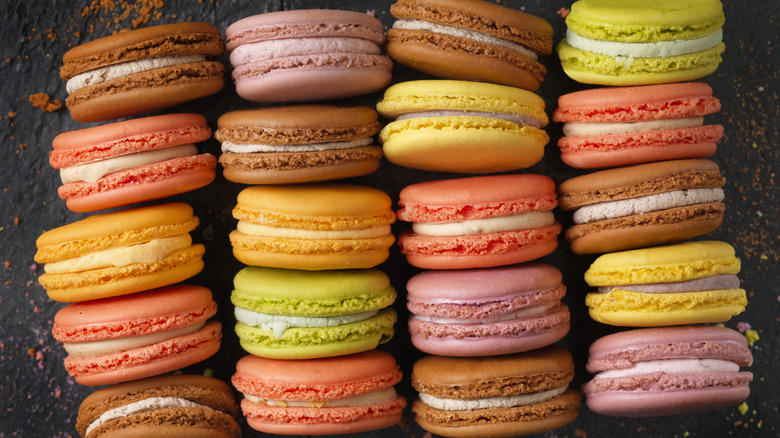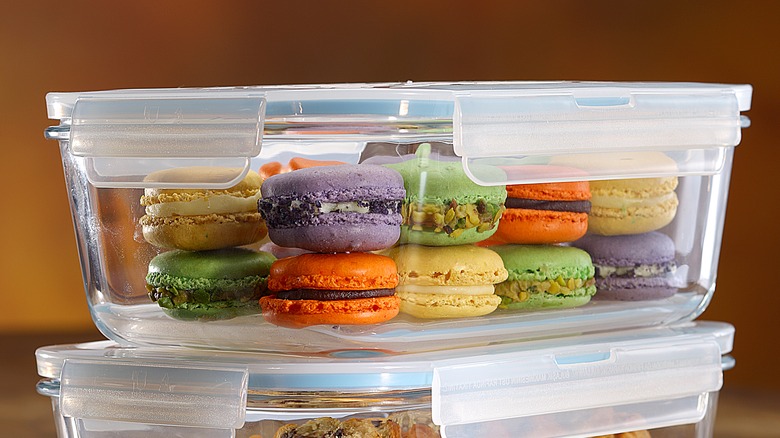How To Properly Store Macarons To Enjoy Later
If you are a baking enthusiast and enjoy indulgent, sophisticated confections, you may have taught yourself how to make French macarons; however, equally important is learning how to store them. With a crispy exterior, a melt-in-your-mouth interior, and a wide variety of flavors to choose from, it can be tempting to pace your consumption of these scrumptious treats. If you choose to do so, though, you will want to make sure you know exactly how to preserve their delicate quality.
The key to maintaining the flavor and texture of your macarons is to prevent them from drying out. In order to keep moisture in, you want to keep air out. Store your macarons in an airtight container sealed with a lid or plastic wrap to act as a buffer between the confections and their environment. If you plan on enjoying them promptly, you can keep them at room temperature in a pantry or on the counter, where they will stay fresh for up to one week. If you want them to last a bit longer, you will want to keep them in the refrigerator instead, as this is a more humid environment. There, they can last for up to seven weeks, allowing you to savor them at your own pace — just be sure to let them come to room temperature for the ideal texture before enjoying them.
How to keep macarons in the long-term
If you want to maximize the shelf life of your macarons, we have good news. You can easily freeze your extras so that they last for an extra two months in total — one in the freezer and another once they have thawed. To do so, place the macarons into an airtight bag or container, then place them in the freezer. If you would like to minimize the odds of freezer burn, you can even wrap the individual treats in plastic wrap to reduce moisture loss. When you are ready to eat them, allow them to thaw at room temperature and enjoy.
Old macarons are unlikely to expire in the traditional sense; rather, they tend to decline in quality until they are unpleasant to eat. They are still perishable, however, and you should still check them for signs of spoilage in case you are one of the rare few whose macarons have become unsafe to consume. Examine the macarons with your sense of sight and smell for evidence, such as patches of mold growth, a soggy texture, or an unappetizing, rancid odor. If any of these are present, it is best to dispose of the macarons rather than try to eat them.

